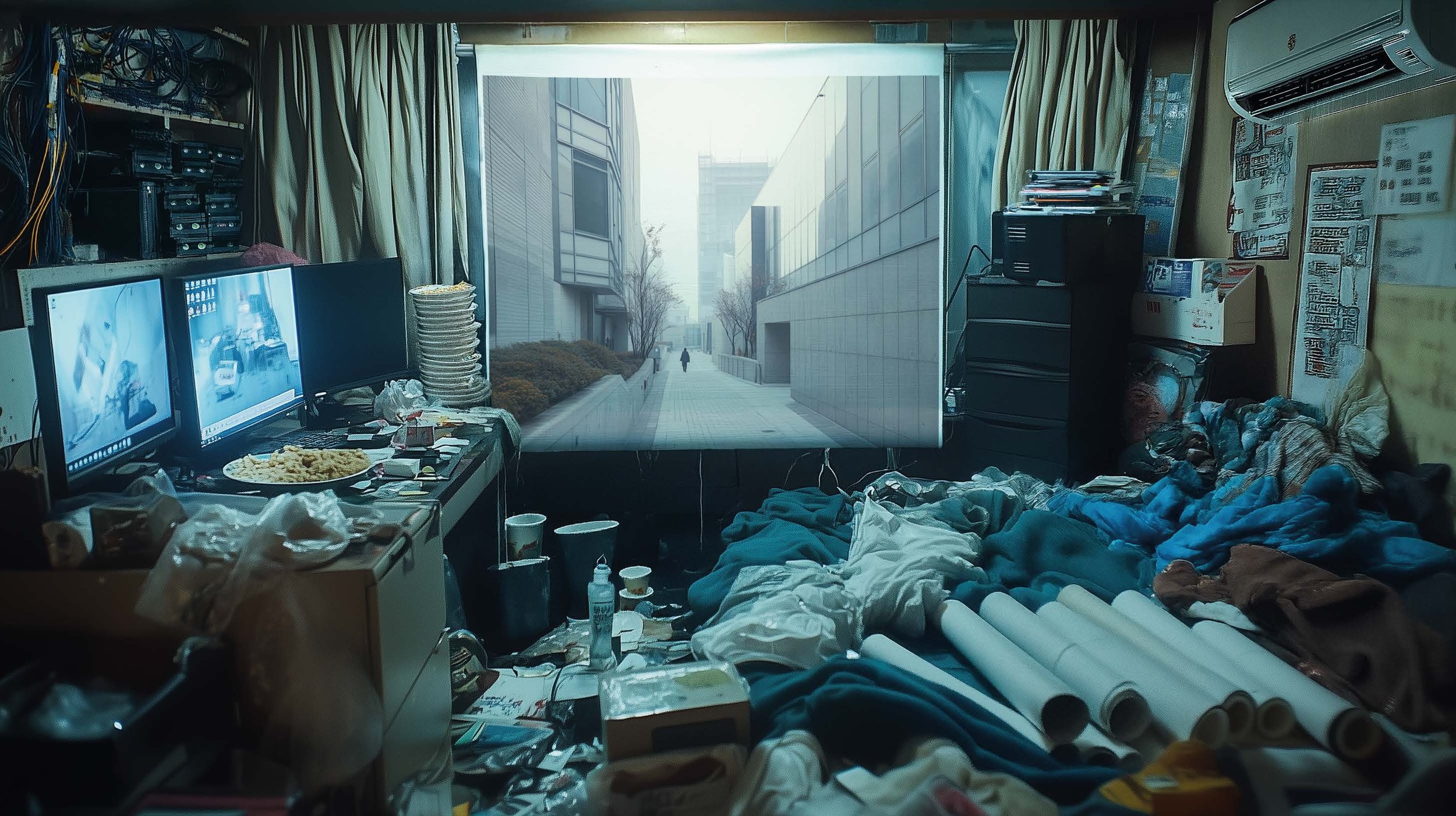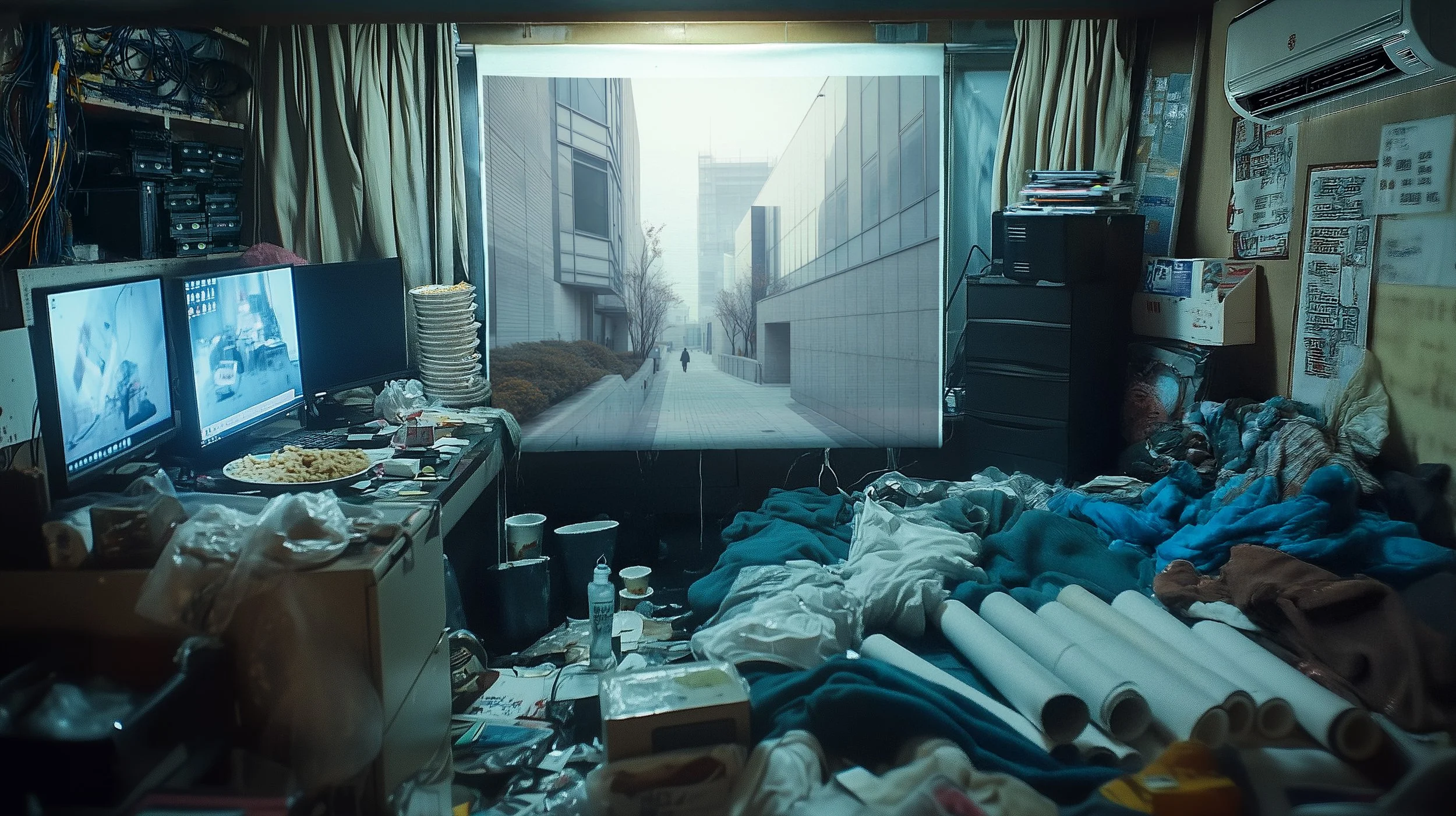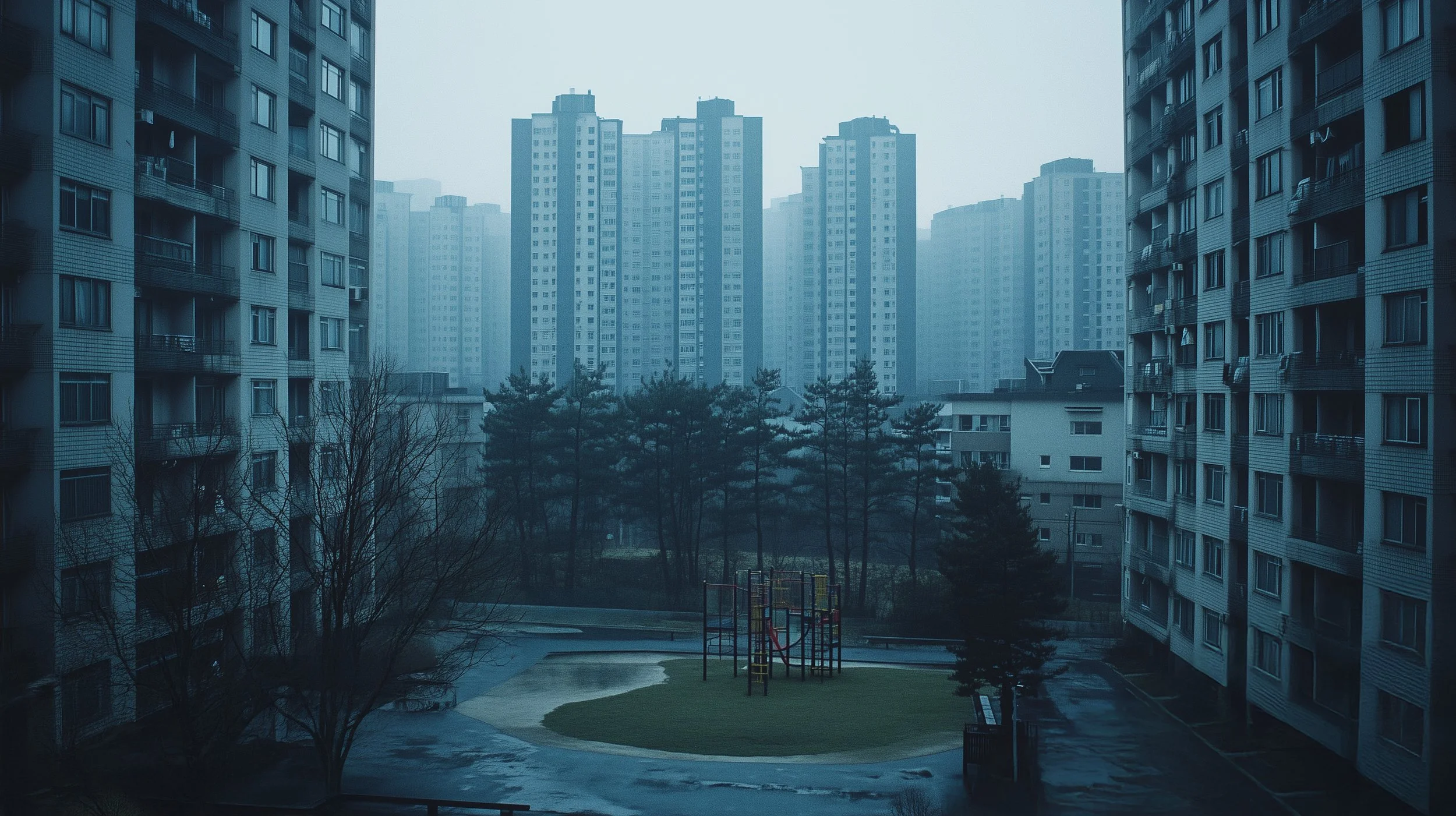
UNSEEN
by Rheena Jung
The research examines the meaning of isolation in contrast to sociability, framing domesticity, the cityscape and surrounding environments through the perspective of the Hikikomori community. It questions how we live together and the role of housing and non-governmental groups in reshaping social isolation.
02. Engineered Ecologies: Investigating human-made environments and their implications on future societies.
Film Logline: In a near-future Seoul apartment complex, a reclusive woman survives the government’s failed outdoor policy by faking compliance with the help of an underground business—run by her upstairs neighbours—only to find herself unexpectedly drawn toward the world outside.
Project Description:
This project explores spatial norms and social isolation in Korean society, linking the concept of supply chain with interior space—framing space itself as something to be distributed, controlled, and consumed. Set in 2030, the film imagines a future in Korea where the government enforces a “Mandatory Outdoor Activity” policy. In the name of public health and social revitalization, citizens are required to spend a set amount of time outdoors, away from their registered residences, with photographic proof.
This policy, with stricter room rental system regulations, sparks backlash—particularly from Hikikomori, individuals who have chosen long-term seclusion. The film raises questions about whether mandated outdoor time can genuinely foster social well-being and whether equal access to nature is truly guaranteed.
In response, a black-market business emerges, selling fake outdoor photos to help users bypass the mandate. The narrative follows a woman who has lived in isolation for ten years and slowly begins stepping outside while using this service. Eventually, it’s revealed that the business is run by neighbors in the same apartment building—some of whom live in isolation themselves, while others quietly work to support them. Two contrasting lives unfold side by side, within the same walls.
SHORT FILM - Canon EOS 5D Mark III, Kling, Adobe Premiere Pro





